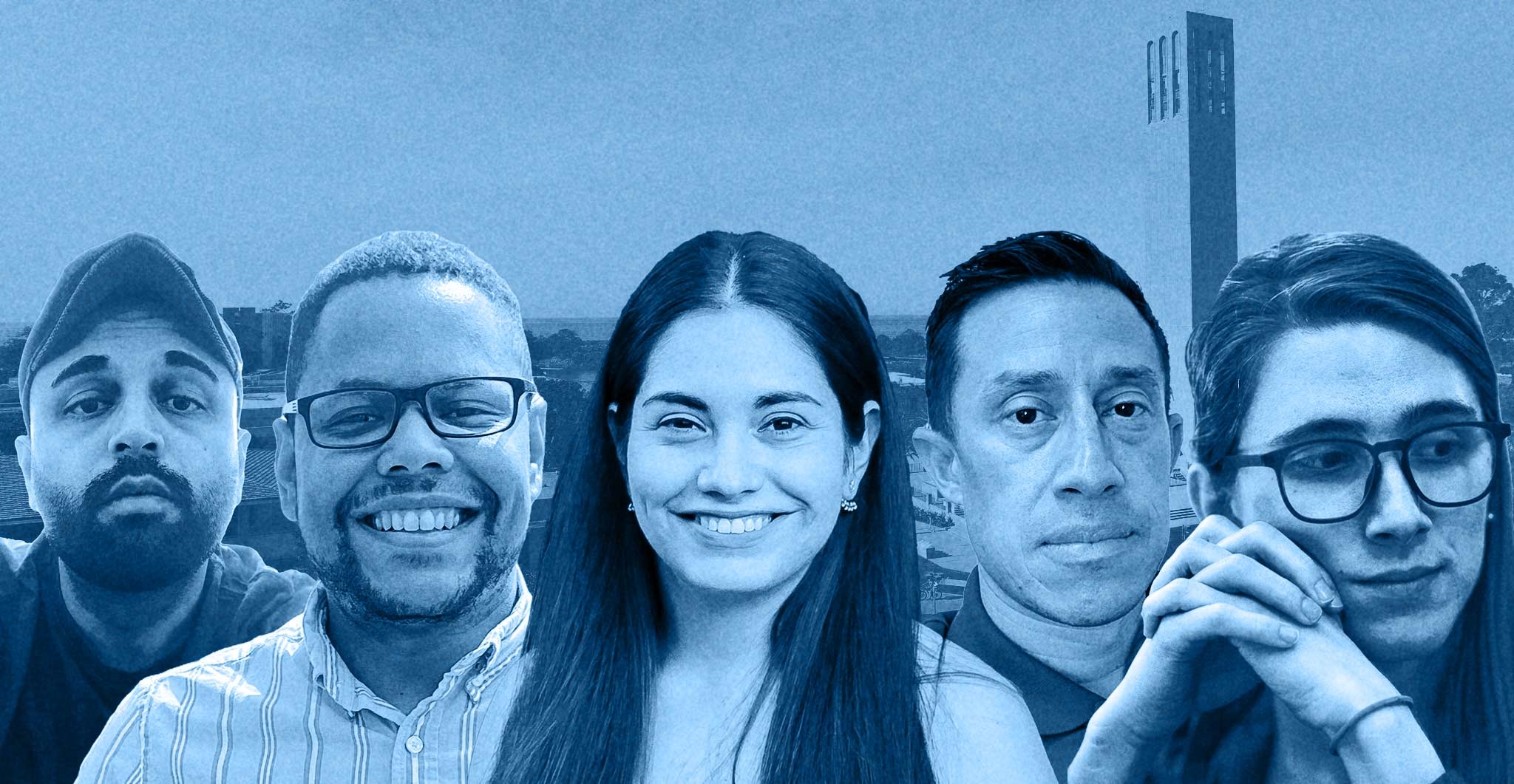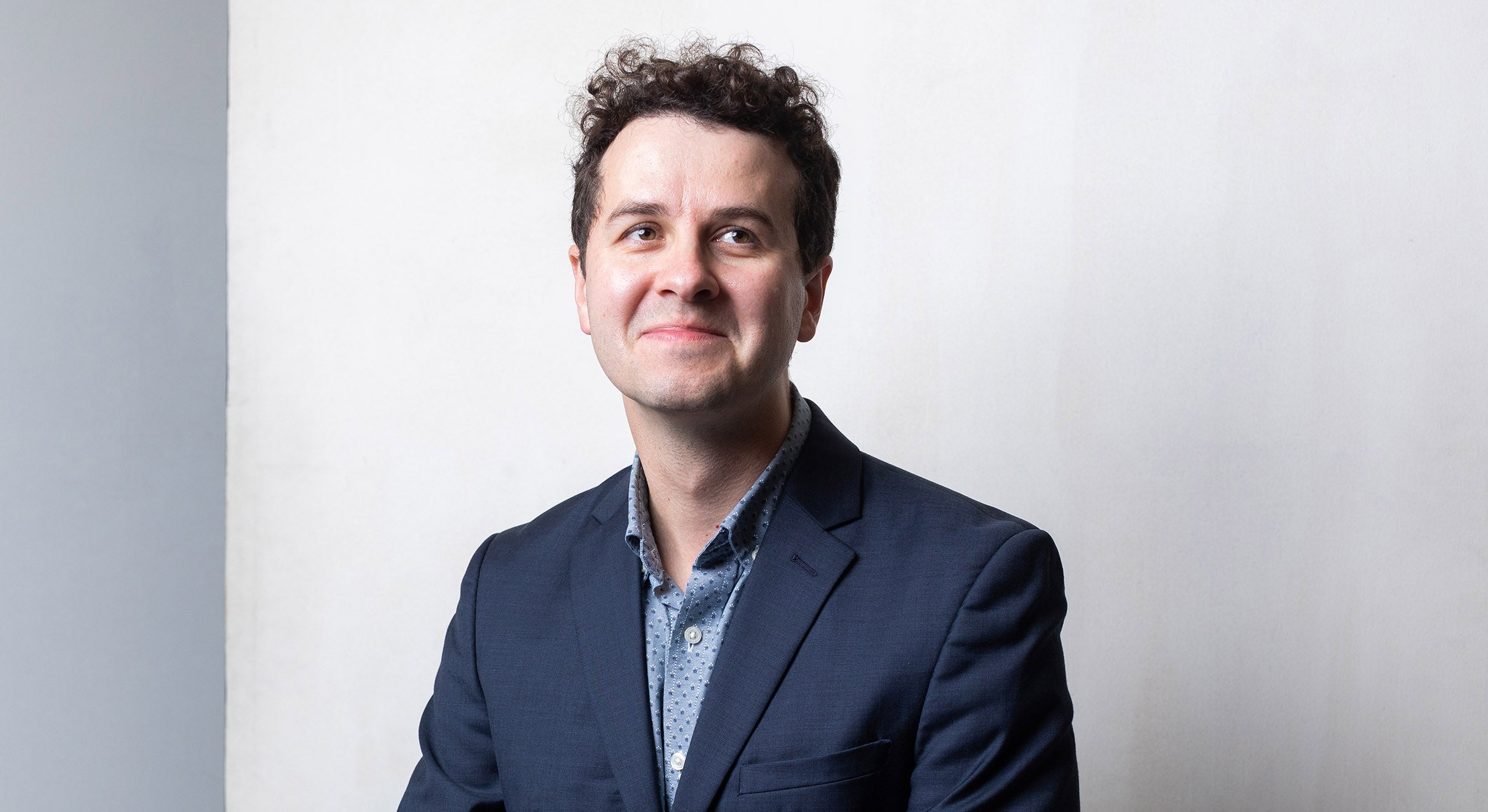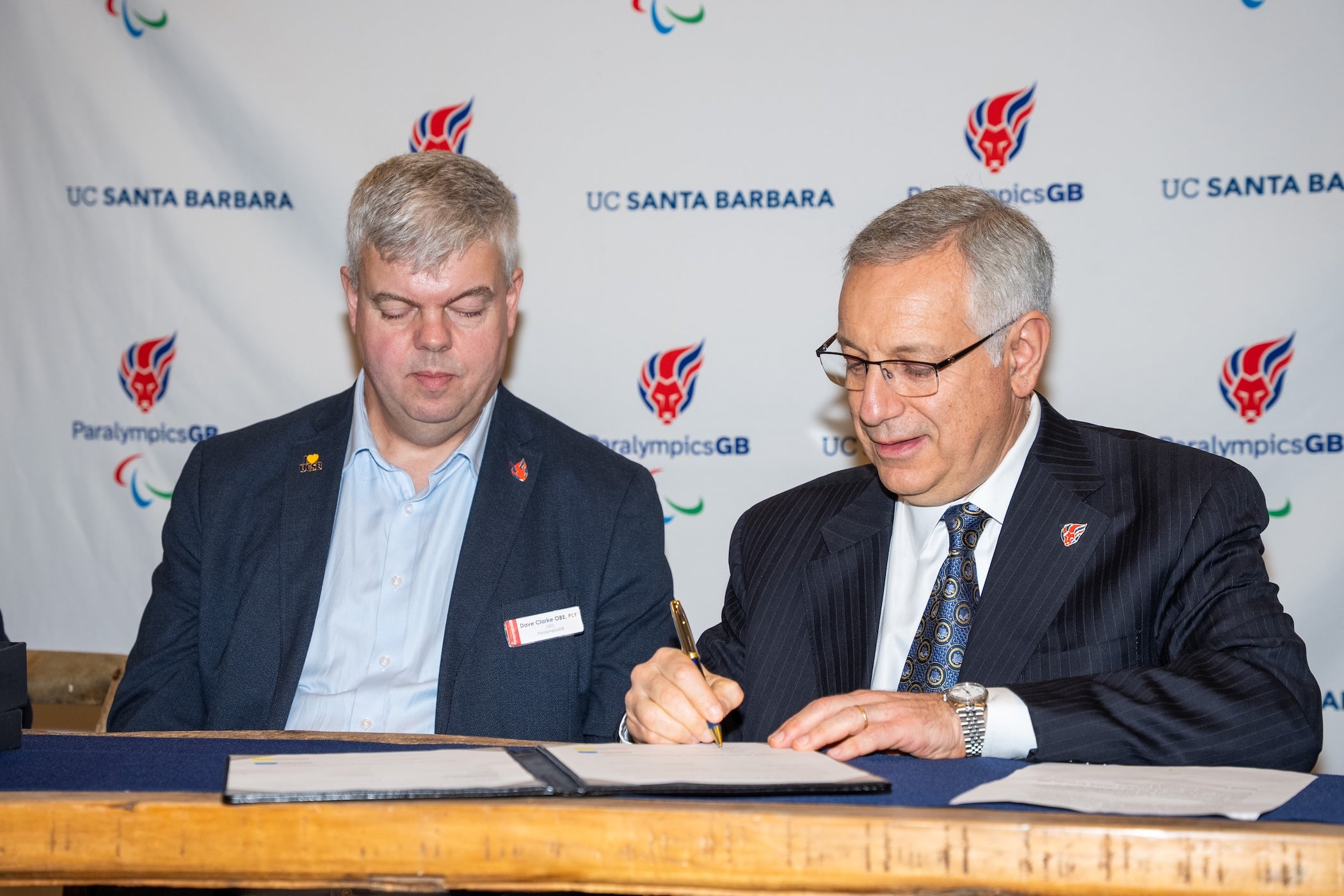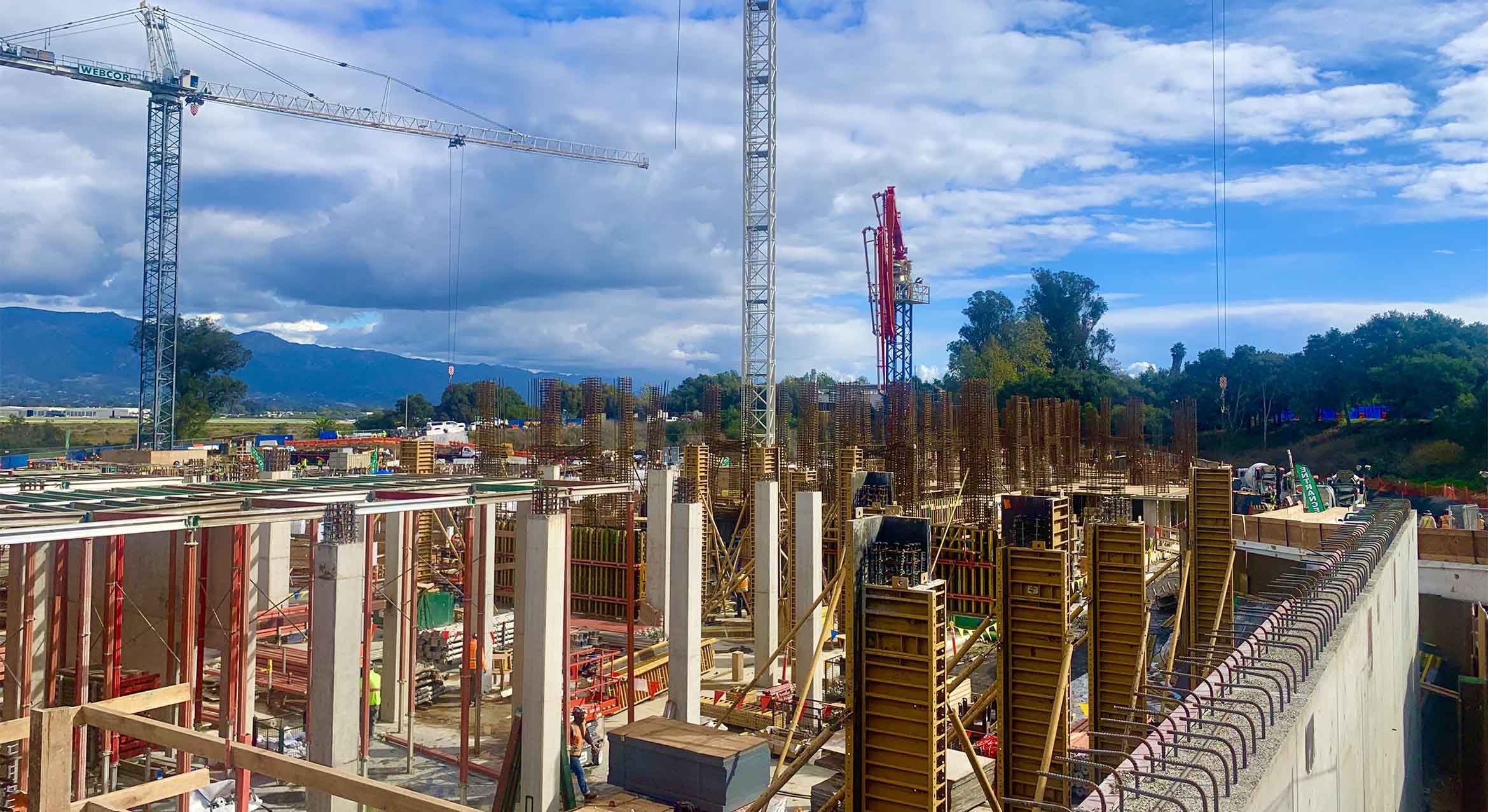
Meet the fellows: UC President’s and Chancellor’s postdoctoral fellows begin new award year
A diverse group of scholars have chosen to pursue the next phase of their academic careers at UC Santa Barbara — and they’ll do so as prestigious UC President’s and Chancellor’s postdoctoral fellows.
“These fellowships are extraordinarily competitive, so we are delighted to welcome such a strong cohort to campus this year,” said Interim Graduate Dean Leila J. Rupp. “As their stories make clear, these are incredibly accomplished scholars whose diverse interests and experiences add to the richness of our community. Along with our many faculty members who started their careers as President’s Postdoctoral Fellows, they model giving forward in their research, teaching and mentoring.”
Established in 1984, the President’s Postdoctoral Fellowship Program (PPFP) was created to encourage Ph.D. recipients from underrepresented communities to pursue academic careers at the University of California. The Chancellor’s Postdoctoral Fellowship Program (CPFP) selects awardees from the PPFP pool of applicants to offer postdoctoral research fellowships and faculty mentoring to outstanding scholars in all fields.
“The PPFP reflects the UC’s commitment to advance opportunities for underrepresented scholars by identifying outstanding talent early, building community and providing supportive career mentoring,” said Maria Teresa Napoli, who serves as the director of strategic research initiatives in the UCSB Office of Research. “UC Santa Barbara is excited to welcome our new fellows, whose research will enhance our campus and scientific community.”
The fellows
Hamzah Baig, history
Chancellor’s Postdoctoral Fellow
Originally from Los Angeles and a UCLA alum, Baig was working on his advanced degrees at Yale before returning to California. He hopes to adapt his dissertation into a book manuscript under his mentor Sherene Seikaly’s guidance. “I am particularly eager to contribute to institutional initiatives that increase access to higher education for historically underrepresented learners as well as courses, mentorship and programming designed to expose students to topical issues of race, gender and class from a global perspective,” he said.
“Baig’s position as a Chancellor’s Postdoctoral Fellow at UCSB opens new horizons on revolutionary thought and practice in Middle East and African history,” said Seikaly, an associate professor and director of the UCSB Center for Middle East Studies. “His long experience and engagement with US-based abolition movements, his anti-imperial commitments, and his work on Algeria as a crossroads of Arab, African and South Asian politics, position him to be an exceptional partner and leader in initiatives that critically imagine what an internationalist abolitionist agenda might look like.”
Last year’s Chancellor’s Postdoctoral Fellow, Eupha Jeanne Daramola, a postdoctoral scholar at the Gevirtz School of Education, was able to renew her placement and continue her research on how racism and racial dynamics shape K–12 policy design and implementation.
Tessa Cookmeyer, Kavli Institute for Theoretical Physics
President’s Postdoctoral Fellow
A former World Cube Association National Champion, Cookmeyer earned her graduate degrees from UC Berkeley. She said she hopes the fellowship’s hiring incentive will advance her goal of becoming a full-time UC faculty member. (The program provides five years of partial salary support to campuses that hire former fellows.)
“As I have advanced from college, to graduate school, to a postdoc now, there are fewer and fewer women in my field,” she said. “And this disparity makes it harder and harder for me to find people I can identify with. Part of me wants to persist in academia just in the hope of slightly reducing that disparity and maybe one day being the inspiration for someone else.”
Cookmeyer is pursuing research on a class of theoretical materials called spin liquids with mentor Leon Balents, a professor in the Department of Physics and a permanent member of the Kavli Institute for Theoretical Physics. “It is a great pleasure and an honor to have Tessa join us at UCSB,” he said. “Her accomplishments speak for themselves, and she has already proven herself a remarkable scientist and communicator. She’s already writing her first paper based on her work at UCSB.”
Julio Orellana, English
President’s Postdoctoral Fellow
A child of Guatemalan migrants who left Guatemala under dire structural conditions, Orellana joins UC Santa Barbara with a doctorate from UC Riverside. His research in Central American studies looks at forced migration in Guatemala.
“The study examines Guatemalan labor migrants from various racial and ethnic backgrounds, primarily Maya and mestizo/a/x ladino/a/x,” he said. “My family was part of these large migration streams that arrived in the U.S. beginning in the late 1960s and throughout the 1980s and 1990s during Guatemala’s 36-year civil war. People were forced to leave Guatemala for various reasons including those in search of dignified material conditions, along with those fleeing political violence, persecution and in the case of Mayan communities, state sponsored genocide.”
Orellana will be working to develop his book manuscript while conducting additional fieldwork in Guatemala under the mentorship of Ben Olguín, Robert and Lisa Erickson Presidential Chair in English, and Charles Hale, anthropology professor and SAGE Sara Miller McCune Dean of Social Sciences.
Marcell Cadney, ecology, evolution and marine biology
President’s Postdoctoral Fellow
Cadney, the first in his family to earn a college degree, was able to continue his fellowship for a second year in the Ecology, Evolution, and Marine Biology Department. A trained exercise physiologist who earned his Ph.D. from UC Riverside, Cadney wants to expand understanding of the interplay between physiology and epigenetics.
“My work at UCSB has exposed me to cutting-edge technologies that will hopefully make me a more well-rounded biologist in my particular field,” he said. “I want to apply those skills and technologies to an exercise mouse model to produce a proof-of-concept for the kinds of multi-disciplinary work I want to start doing in my own lab.”
Mentoring the next generation of researchers is also an important goal for Cadney. During his graduate school years, he worked on the Higher Runner Mouse Model, a 30-year-old artificial selection experiment involving a sizable lab team. “This experience inspired me to pursue work in academia that would allow me to mentor students of my own.”
Marissa Gionet-Gonzales, mechanical engineering
President’s Postdoctoral Fellow
Gionet-Gonzales earned her Ph.D. at UC Davis. She is motivated by the direct impact her research can have on curing and treating diseases and injuries, and her own role in making academia a more diverse and inclusive space. Gionet-Gonzales works jointly in the Pruitt and Stowers labs to combine biomaterials design with tissue characterization and tissue engineering approaches using stem cells.
“I want to work toward making sure that we are not limiting academic research to an elite few,” she said. “Everyone and anyone can do research no matter what background or personal situation they are coming from. I have had the opportunity to mentor several underrepresented students giving them the confidence and resources they need to succeed, and it has been extremely rewarding.”
“The PPFP has allowed her to learn about stem cells and cardiac tissue, a new area of research from her Ph.D. work which focused on biomaterials design for skeletal muscle engineering,” said her mentor Professor Beth Pruitt, chair of the Bioengineering Department. “Her interdisciplinary work is an exemplary demonstration of how postdoctoral research enriches inquiry at the interface of labs. These fellowships and training periods allow postdoctoral scholars to build their own skill set but also to make cutting edge contributions to the field.”
Additionally, Laura Terrance (English), Erin Lam (Classics) and Juan Manuel Rubio (Global Studies) also received or renewed their President’s postdoctoral fellowship.
Debra Herrick
Associate Editorial Director
(805) 893-2191
debraherrick@ucsb.edu



